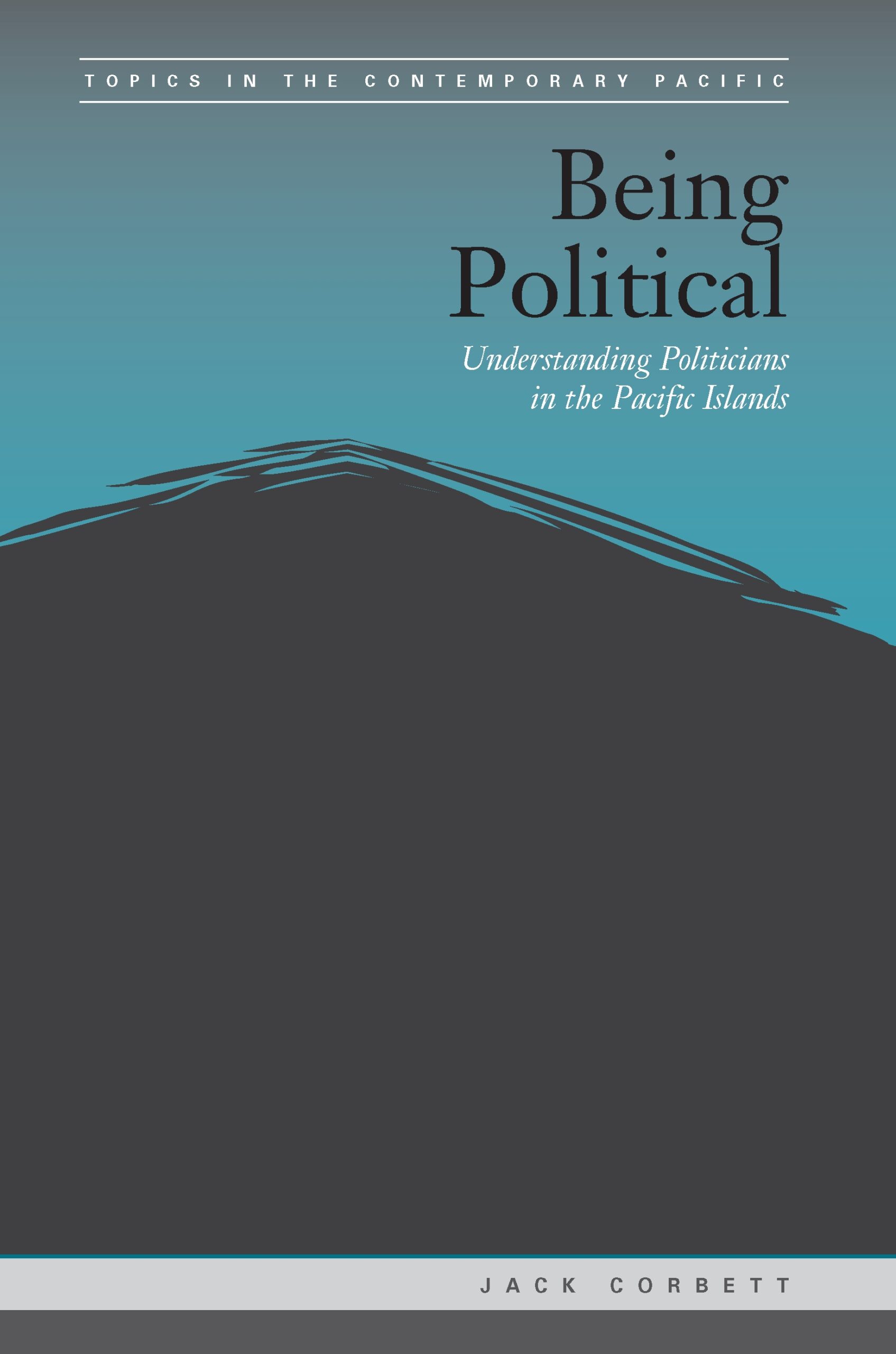Being Political: Leadership and Democracy in the Pacific Islands
- About the Book
-
Politicians everywhere tend to attract cynicism and inspire disillusionment. They are supposed to epitomize the promise of democratic government and yet invariably find themselves cast as the enemy of every virtue that system seeks to uphold. In the Pacific, “politician” has become a byword for corruption, graft, and misconduct. This was not always the case—the independence generation is still remembered as strong leaders—but today’s leaders are commonly associated with malaise and despair. Once heroes of self-determination, politicians are now the targets of donor attempts to institute “good governance,” while Fiji’s 2006 coup was partly justified on the grounds that they needed “cleaning up.”
But who are these much-maligned figures? How did they come to arrive in politics? What is it like to be a politician? Why do they enter, stay, and leave? Drawing on more than 110 interviews and other published sources, including autobiographies and biographies, Being Political provides a collective portrait of the region’s political elite. This is an insider account of political life in the Pacific as seen through the eyes of those who have done the job.
We learn that politics is a messy, unpredictable, and, at times, dirty business that nonetheless inspires service and sacrifice. We come to understand how being a politician has changed since independence and consider what this means for how we think about issues of corruption and misconduct. We find that politics is deeply embedded in the lives of individuals, families, and communities; an account that belies the common characterization of democracy in the Pacific as a “façade” or “foreign flower.”
Ultimately, this is a sympathetic counter-narrative to the populist critique. We come to know politicians as people with hopes and fears, pains and pleasures, vices and virtues. A reminder that politicians are human—neither saints nor sinners—is timely given the wave of cynicism and disaffection. As such, this book is a must read for all those who believe in the promise of representative government.
- About the Author(s)
-
Jack Corbett, Author
Brij V. Lal, Series Editor
Brij Vilash Lal was professor emeritus of Pacific and Asian history at the Australian National University and adjunct professor of the University of Queensland, Australia.
- Reviews and Endorsements
-
- Few books on Pacific Islands politics cover the entire region. Fewer still set their arguments firmly in the broader context of democratic theory and include references to St Augustine, Machiavelli and Weber. But that is what Jack Corbett has done here and with notable success. . . . This book casts a new and penetrating light on the general conduct of politics in the Pacific Islands and will become an indispensable source for students of the region.
—Stewart Firth, Australian National University, Australian Journal of International Affairs (April 2016) - Jack Corbett has interviewed 112 politicians from Pacific countries and draws upon biographic sources for many others to find out what these politicians themselves think of this characterization and of the work they do. . . . Not surprisingly, zooming in on the details of how political lives and careers are experienced offers Corbett a nuanced understanding of the ambiguities and dilemmas of leadership and politics more generally.
—Steffen Dalsgaard, University of Copenhagen, Pacific Affairs, 90:1 (March 2017)
- Few books on Pacific Islands politics cover the entire region. Fewer still set their arguments firmly in the broader context of democratic theory and include references to St Augustine, Machiavelli and Weber. But that is what Jack Corbett has done here and with notable success. . . . This book casts a new and penetrating light on the general conduct of politics in the Pacific Islands and will become an indispensable source for students of the region.
- Supporting Resources
-





